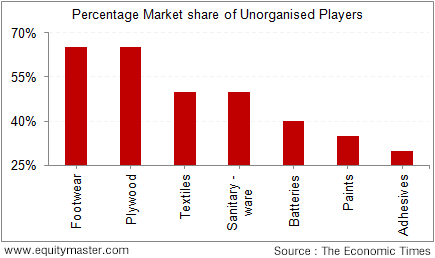- Home
- Todays Market
- Indian Stock Market News May 18, 2017
Sensex, Nifty Close in the Red; Realty Stocks Lead Losses Thu, 18 May Closing
After opening the day marginally lower, share markets in India halted the rally witnessed in previous sessions and ended the day in red. Losses were largely seen in the realty sector and metals sector, while stocks in the IT sector ended the day in green.
At the closing bell, the BSE Sensex stood lower by 224 points (down 0.7%) and the NSE Nifty closed lower by 96 points (down 1%). The BSE Mid Cap index ended the day down by 2.2 %, while the BSE Small Cap index ended the day down by 2%.
Asian stock markets too finished in red as of the most recent closing prices. The Hang Seng dropped 0.62% and the Nikkei lost 1.32%. The Shanghai Composite dropped 0.74%. European markets too are trading lower today. The FTSE 100 is down 1.34% while Germany's DAX is trading lower by 0.86% and France's CAC 40 is down 1.1%. The rupee was trading at 64.83 to the US$ at the time of writing.
In news about the economy. The Goods and Service Tax (GST) reform moved another step closer to meeting the July 1 deadline after the GST council approved the final set of rules for the new tax framework.
The nine rules finalised by the council pertain to composition, valuation, transition, input tax credit, invoice, payment, refund, registration, and return.
The council, chaired by Finance Minister Arun Jaitley, comprises states' finance ministers. In its two-day meeting, the council is expected to finalise the GST rules and discuss fitment of rates, with less than 50 days to go for the rollout. This meeting will, in fact, decide the fate the rollout of GST on July 1, 2017.
According to The Economic Times, the council has begun its discussion on the list of items that will attract 0% GST. Most states have pitched for keeping items sensitive to their states out of the list.
The Centre is keen on keeping the list small because a large list of exemptions would hurt the objective of base expansion. Exemption of essential services will also be discussed.GST, when implemented will bring in a host of regulations to enable transparency in the tax regime.
This will no doubt lead to added costs for implementation of regulations. Unorganized players may bear the brunt of added costs of compliance and may find it difficult to comply with the GST norms and compete with the well-established organised players.
Sectors That Can Benefit From GST
The implementation of GST is bound to bring more companies under the new tax regime, thus providing a level playing field to organized players forming part of sectors having a high proportion of the unorganized segment.
This will lead to a lot of opportunities in the organized sector. So, how can one make the most of these opportunities?
We believe a few super investors could provide the clue. These are the guys who've beaten the markets black and blue and have an eye for multi bagger stocks irrespective of the macro environment.
With respect to which super investors to follow, our Research analysts Kunal and Rohan have could be of great help courtesy their project, The Superinvestors of India.
To know more about these superinvestors and their stock picking approach, download a free copy of - The Super Investors Of India.
Moving on to news from stocks in the auto sector. Bajaj Auto share price ended the day lower by 1.9% today after the company declared its fourth quarter results.
Bajaj Auto posted a 15.5% decline in its net profit at Rs 8,020 million for the fourth quarter ended March 31 due to lower sales. The company had posted a net profit of Rs 9,490 million during the same period previous fiscal.
A rise in input material cost and expenses on transition to BS-IV compliant vehicles hurt margins.
The company sold 36,65,950 units during the 2016-17 fiscal, down 5.8%, from 38,93,581 units in the previous fiscal.
Total revenue from operations dipped 6.9% to Rs 52.1 billion during the reporting quarter as against Rs 56 billion posted in the same quarter of the previous year.
After notebandi in the third quarter, the company suffered another major blow in the March quarter from the BS III ban which brought its net profit down by 15%.
One must note that Bajaj Auto had significant levels of unsold BS III vehicle inventories as on 20 March 2017, which it had to liquidate before 1 April 2017 following the Supreme Court directive on 28 March 2017.
Bajaj Auto's board recommended a dividend of Rs 55 per share.
For information on how to pick stocks that have the potential to deliver big returns, download our special report now!
Read the latest Market Commentary



Equitymaster requests your view! Post a comment on "Sensex, Nifty Close in the Red; Realty Stocks Lead Losses". Click here!
Comments are moderated by Equitymaster, in accordance with the Terms of Use, and may not appear
on this article until they have been reviewed and deemed appropriate for posting.
In the meantime, you may want to share this article with your friends!